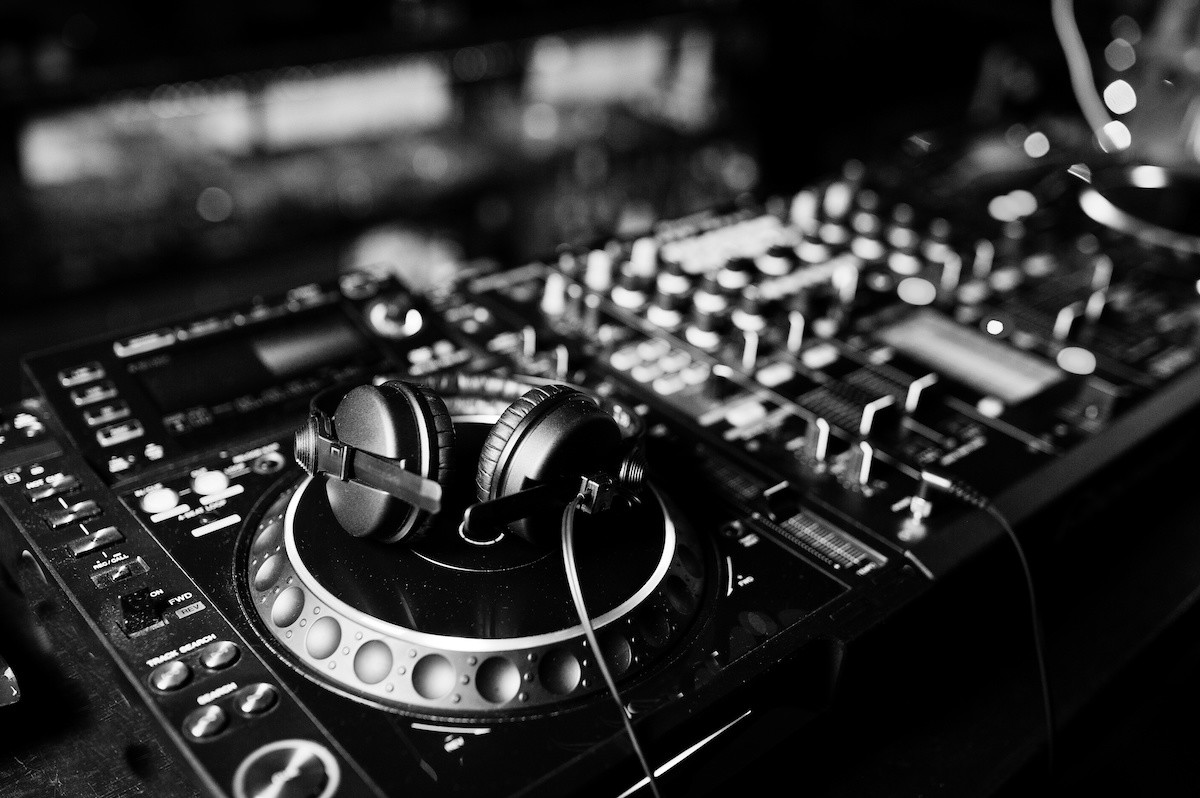Music
DJ Equipment Guide: How to Build a DJ Setup
Written by MasterClass
Last updated: Jun 7, 2021 • 4 min read
Much like a producer or an instrumental musician, a DJ must invest in the proper equipment to perform.
Learn From the Best
What Is DJ Equipment?
There are six key devices that are essential for a DJ to mix and perform live:
- 1. Input device: An input device feeds songs and samples into your DJ rig. These devices can be turntables, CD players, cassette players, laptops, or any other sort of media player.
- 2. Mixer: A DJ mixer combines multiple input devices and allows DJs to toggle back and forth between input sources. It also lets the DJ patch in with a microphone to talk to the audience or even rap over the music.
- 3. Sound system: A basic sound system consists of a stereo pair of speakers and at least one subwoofer for dedicated bass sounds. These speakers are powered by one or more amplifiers, and in the case of powered speakers, amps are built into the speakers themselves. Professional DJs may use additional speakers or patch into a PA system at a club.
- 4. Headphones: Proper DJ headphones allow you to preview music tracks and cue them up at the exact right moment.
- 5. Microphone: Many DJs like to address the crowd at various points in a performance. For this, you'll need a mic that plugs into your mixer and an XLR cable to connect the microphone.
Essential DJ Equipment and Software for Beginners
Beginner DJs must define their ambitions and set a budget for the proper equipment.
- DJ controllers: For a streamlined DJ control experience, consider affordable items like the Pioneer DDJ-SB3-N or DDJ-400. Those on a limited budget can also try the Pioneer DDJ-200, while those with ample funds may explore the Pioneer DDJ-1000 SRT Serato DJ Pro, the Denon DJ Prime 4, or anything from the Pioneer DJM series. A good DJ controller will come with easy-to-use jog wheels and faders and offer MIDI connectivity.
- DJ software: The Native Instruments Traktor line is considered high quality and accessible to beginning DJs. Ableton Live is well regarded both as DJ software and as a standalone digital audio workstation (DAW) that you can use for studio recording and remix projects. Ableton typically pairs with standalone MIDI controllers from brands like Novation, which can be pricey. Those with minimal funds can try the Serato DJ Intro software, which is free but limited in function. It pairs naturally with the Serato DJ controller line of products. A newer brand, Rekordbox, has gained prominence and works well with many Pioneer DJ controllers.
- Mixer: If you want to build your DJ system without using a DJ controller, consider a mixer from Mackie, Yamaha, or Akai. Be sure to purchase a mixer with USB connectivity; these mixers double as audio interfaces for recording onto a computer. If you are planning to use turntables as a sound source, be sure to get a mixer that can accept RCA inputs.
- PA system: If you are providing your own PA speakers, investigate offerings from the Behringer Eurolive system. Those with greater funds can try speakers from Yamaha, Electro Voice, or JBL. In a pinch, you can even use studio monitors, but these will lack the depth and power of true DJ speakers. Try to get a stereo pair with at least 12-inch speaker cones. You will also need a dedicated subwoofer for bass sounds.
- Headphones: Audio-Technica, Sony, Sennheiser, and AKG make a wide array of headphones to fit all budgets.
- Input sources: Your input source can be turntables (Audio-Technica makes good, affordable models like the AT-LP140XP Direct-Drive Professional DJ Turntable), CD players, or laptop computers. Some DJs use touchscreen tablets as both input sources and mixers.
4 Tips for Building a Beginner DJ Setup
Beginner DJs do not need to acquire top-of-the line professional equipment. To build your first DJ setup, consider the following cost-saving tips:
- 1. Use a DJ controller instead of a mixer. Modern DJ controllers streamline the process of cueing up, crossfading, and manipulating tracks. These controllers include dedicated crossfaders that let DJs seamlessly transition from one track to another, and they often have built-in media players as well as Bluetooth connectivity for wireless input devices. The simplicity of an all-in-one unit can make DJing simpler and more streamlined.
- 2. Try karaoke equipment. Karaoke-focused brands offer speakers and microphones at a significant savings compared to pro DJ equipment. Take note that these systems will only work for small parties and will sound underpowered in a dance club.
- 3. Consider purchasing a bundled package. If you aren't hung up on brand names, you can get value from bundled packages. For example, the Hercules DJ DJStarter Kit includes a two-channel DJ controller, speakers, headphones, and Serato DJ Lite software.
- 4. Invest in a subwoofer. Dance music fans expect big bass sounds, and small speakers are physically incapable of providing such frequencies. Invest part of your budget in a real subwoofer to bring bass sounds to life.
Want to Learn More About Music?
Become a better musician with the MasterClass Annual Membership. Gain access to exclusive video lessons taught by the world’s best, including Questlove, St. Vincent, Sheila E., Timbaland, Itzhak Perlman, Herbie Hancock, Tom Morello, and more.
